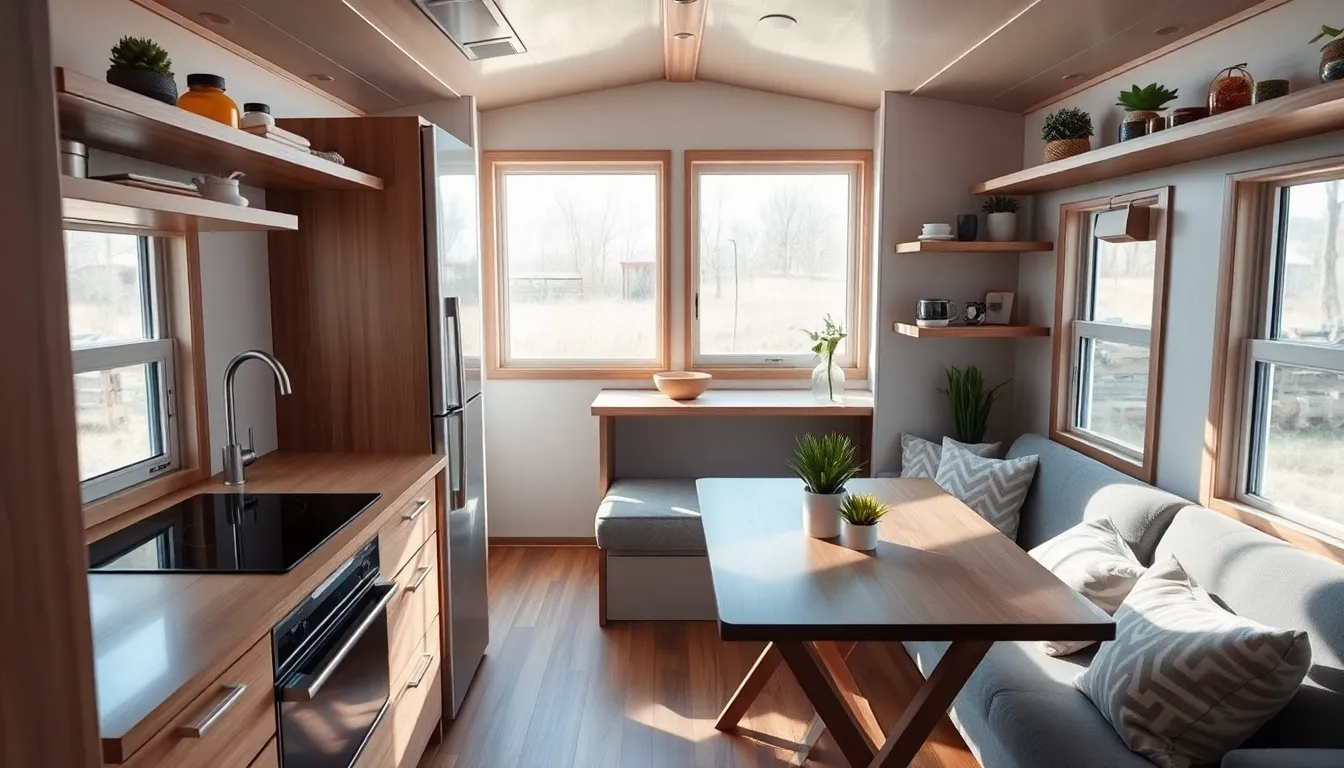Hardwood floors are valued for their timeless beauty, natural warmth, and lasting durability. They enhance the aesthetics of any interior, from traditional living rooms to modern open-plan kitchens. Yet in colder months, hardwood surfaces often feel uncomfortably cold to the touch.
Radiant heating systems paired with nailed hardwood provide a sophisticated solution, blending classic flooring with modern innovation. This combination requires careful preparation and attention to detail, but when executed correctly, it delivers consistent comfort, energy efficiency, and long term value.
Table of Contents
ToggleUnderstanding the Challenge of Hardwood with Heat
Wood is a natural material that expands and contracts in response to temperature and humidity changes. Improper installation over a heated surface can lead to warping, cupping, or gaps between planks. Choosing the right type of wood, installation method, and underlayment is crucial for maintaining both the beauty of the floor and the efficiency of the heating system.
Preparing for Installation
Selecting the Right Wood
Engineered hardwood is often recommended for radiant heating because it is more dimensionally stable than solid wood. Popular species such as oak, maple, and hickory offer durability while maintaining a natural aesthetic. Solid hardwood can be used, but it requires more precise acclimation and attention to moisture levels. Many installers highlight that radiant floor heating under hardwood works best when paired with properly acclimated materials to ensure stability and long-lasting comfort.
Moisture and Vapor Barriers
Proper underlayment is essential for both heat transfer and protection. Moisture and vapor barriers help prevent excess humidity from damaging the wood while also ensuring efficient movement of heat from the panels below into the flooring. These measures enhance overall performance by directing warmth upward into the hardwood surface while safeguarding the system beneath.
Careful Nailing Practices
The radiant heating panels beneath the hardwood must remain intact during installation. Installers use specific nailing patterns, spacing, and tools to avoid piercing or damaging the heating system. This careful approach underscores the need for professional expertise. WBI Warm the radiant panel company provides guidance and ensures the system functions safely with hardwood floors.
Benefits of Radiant Heated Hardwood Floors

Year Round Comfort
Radiant heating creates a gentle and even warmth across the floor, turning every room into a welcoming environment. Walking barefoot on a heated hardwood surface in winter becomes a simple pleasure, while the warmth extends upward to create a cozy and balanced indoor temperature.
Energy Efficiency
Radiant heating systems operate at lower water or electrical temperatures than conventional forced air systems. Less energy is required to achieve comfort, leading to reduced heating bills and lower overall energy consumption.
Improved Indoor Air Quality
Unlike traditional heating systems that blow air and circulate dust and allergens, radiant heating warms surfaces silently. Homes with this type of system often experience cleaner indoor air, benefiting those with asthma or other sensitivities.
Expanded Case Example
Consider a family living in a cold climate who wanted the charm of hardwood floors but were frustrated with the cold touch underfoot. They installed radiant heating panels under engineered oak in their main living areas. The transformation was immediate. Mornings became more enjoyable as the family sipped coffee in a cozy, warm kitchen. Children played directly on the hardwood floor without the need for rugs. Heating bills decreased due to the system’s efficiency. Visitors commented not only on the beauty of the hardwood but also on the inviting warmth that radiated evenly throughout the space.
Role of Experienced Installers
Installing nailed hardwood over radiant panels is not a task for novices. Proper installation requires precision to protect the heating system and ensure uniform heat distribution. Experienced professionals provide guidance on the best materials, acclimation procedures, and nailing methods. Their expertise ensures that the system performs efficiently while preserving the integrity and appearance of the hardwood floor.
Longevity and Maintenance
Radiant heated hardwood floors, when properly installed, can last for decades. The system itself requires minimal maintenance, and the wood retains its natural elegance. With programmable thermostats, homeowners can schedule heating according to daily routines, saving energy without sacrificing comfort. Over time, the combination of durable hardwood and energy efficient heating delivers significant cost savings and contributes to increased property value.
Practical Applications and Versatility
This system is ideal for a variety of spaces. Living rooms, dining areas, and kitchens benefit from both the aesthetic of hardwood and the comfort of radiant heat. In bedrooms, the gentle floor warmth enhances sleeping comfort. Radiant heated hardwood can also be applied in commercial environments, including boutique hotels, high end offices, and upscale retail spaces, where style and comfort are equally important. WBI Warm provides systems that adapt seamlessly to these diverse applications, demonstrating versatility and reliability.
Sustainability Considerations

Many modern radiant heating systems are designed with energy efficiency in mind. Coupled with engineered hardwood sourced from sustainable forests, this pairing supports eco conscious building practices. By operating at lower temperatures and reducing reliance on forced air, radiant systems reduce energy consumption. This combination allows homeowners to enjoy the elegance of hardwood floors without compromising environmental responsibility.
Conclusion
Installing nailed hardwood over radiant heating panels requires careful preparation, precise execution, and professional guidance. The benefits are substantial, merging the enduring beauty of hardwood with the modern comfort of radiant heat. With expert installation and reliable systems, homeowners can enjoy year round warmth, energy efficiency, and healthier indoor air, creating spaces that are elegant, comfortable, and efficient.


